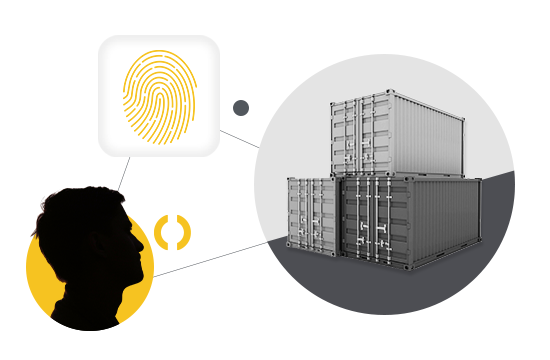Strong business relationships are built through trust and confidence. Platform security and visibility tools can help the transportation sector forge collaborations to eradicate for good the growing menace of freight fraud.
Picture the scene.
It’s late Friday afternoon.
The place: an efficient and successful broker’s office, the end of a frenetic week with a popular holiday weekend ahead. There is just one last load to assign, perhaps via a popular public load board.
A new carrier, who the broker hasn’t used before, looks perfect for the load. Their credentials check out and meet the broker’s specific standards and the load is booked with the carrier. All tasks are satisfactorily done, everyone is happy, the broker can close the laptop with a happy sigh and look forward to that welcome weekend cookout in the sunshine.
Sadly, those cookout burgers are likely to get burned, just like our broker. Because that last load is not going to reach its intended destination as planned and agreed. In fact, it has been ‘hijacked’ and re-routed by a bad actor who has successfully impersonated the bonafide carrier from the start. Chances are, the load is gone for good. In the unlikely event that it is not, the unlucky broker will probably be invited to pay an eye-watering sum to be reunited with it. Whatever happens, all outcomes are bad for the broker, the shipper and – if it exists at all – the legitimate carrier that has had its identity stolen.
By the way, let’s not judge the unfortunate broker harshly. That rogue carrier may have successfully carried several previous loads for the broker or shipper before, in order to build trust and routine – and only when that point is reached pressed the button to commit fraud. In short, it can happen to anyone.
The cons – and the cost
Like most cons throughout history and across industries, freight fraud methods are varied. Take the scourge of ‘double brokering’. In its simplest form, it should be said that double brokering is not necessarily malicious. For instance, if a carrier passes on an agreed load to another carrier without informing all parties that it has done so (most importantly the shipper), then that carrier has carried out a double brokering operation. This practice is severely frowned upon in North America due to potential complications when ensuring proper payment to the actual carrier who hauled the load, assigning liability if something were to happen to the load, and managing operational complexities associated with the involvement of a third party. Had the carrier made all parties aware at the time of accepting the load, it would be seen as a perfectly acceptable act of co-brokering.
On the other hand, deliberately fraudulent double-brokering with clear criminal intent is likely to leave a legitimate carrier out of pocket. In this instance, using fake or fraudulently obtained carrier identity, the bad actor broker passes on a load to another broker or carrier, receives payment for the load and then disappears. Meanwhile, the actual carrier of the load happily carries out the assignment unaware of the sleight of hand – and may never receive payment.
These are just two typical examples of the growing menace of freight fraud across the transportation ecosystem in North America. The Transportation Intermediaries Association (TIA) which represents brokers and 3PLs, produced a study in 2023 stating that the annual cost of transportation fraud now exceeds $1 billion US.1
Freight fraud is increasingly identified as the number-one issue facing shippers, carriers and brokers. Impacts are heavy and hard to measure accurately, but you can be sure that insurance premiums continue to rise for carriers, shippers will lose money replacing stolen goods, and all are prone to suffer unmerited reputational damage, not least from disappointed end consumers. That’s all apart from the time and stress costs arising from dealing with the fallout from such misfortunes.
“There’s a surge of malicious actors engaging in illegal activity, registering with FMCSA as carriers and perpetrating fraud, theft and holding freight hostage in situations without any legal consequences,” said freight brokerage CEO Jeffrey Tucker, testifying on behalf of the TIA to the U.S. House Transportation and Infrastructure Committee in January 2024.
Identity and theft
Fraud may take several forms, but they boil down to carrier identity and theft. In most cases, a bad actor will successfully identify as a legitimate player in the space and use that legitimacy to then steal from a shipper, broker and/or carrier. Fraud therefore has an impact on all parties.
Of course, freight fraud and theft have always existed in some form, just as they have across many other aspects of society; transportation is hardly  alone in facing these challenges. Digital transformation has expedited faster transactions and greater efficiencies, partly because it largely nullifies the historic need for two people to speak to each other to confirm a transaction.
alone in facing these challenges. Digital transformation has expedited faster transactions and greater efficiencies, partly because it largely nullifies the historic need for two people to speak to each other to confirm a transaction.
Freight fraud is on the rise. Cargo theft prevention and recovery network CargoNet reported increases of over 50% in supply chain theft events for both Q2 and Q3 2023, when compared year-on-year to the same quarters in 2022.2
The numbers are sobering. According to CargoNet data, the average value of the goods involved in each fraud event falls between $100,000 and $150,000.2
Clearly, there is much to be done to reduce these frightening numbers. Michael Hamill, VP of Strategy for Trimble’s Transportation sector says: “It’s going to take many different participants within the supply chain to cooperate, share data and add contextuality to the data in order to verify and validate participants within the industry ecosystem.”
So, what will the cooperation look like? “Specifically, brokerage and carrier companies with equipment to move freight are going to need to prove that they have authority, authorization and the capabilities to move freight,” says Hamill. “Information like truck and driver counts, authorized users, insurance coverage, authority and other key credentials will be more important than ever. Companies will need to show clearly that they can provide the services they’ve been asked to perform by a broker or shipper and can do so legally.”
Visibility as crime fighter
Tools already exist to facilitate this fight against crime. Our ‘vigilante’ is called ‘Visibility’, and it’s just one significant attribute of Transporeon’s unique Transportation Management Platform (TMP).
Operating in North America since 2011, and a Trimble Company since late 2022, Transporeon empowers shippers, forwarders, carriers and retailers to move, manage and monitor freight. The TMP deploys the three tenets of automation, real-time insights and collaboration to cut costs, gain efficiencies and build trusted relationships across the spectrum. The platform is neutral – it does not favor shipper, carrier or any other stakeholder.
Take the issue of identity.
Members of closed transport networks working from the same platform have already been vetted, whether freight giver or receiver. Within the Transporeon platform network, all carriers are onboarded at the request of their own shippers and verified accordingly. The barriers against bad actors are firmly shut and barred.
Shippers deploying primary Transporeon solutions – such as Freight Procurement, Transport Assignment, Time Slot Management and Autonomous Procurement – will be working with a trusted pool of carriers, who are already part of their chosen network. Should shippers wish to expand their carrier pool, Transporeon has a Trust Center to facilitate that process and provide security. Profiles can be created with all the necessary documents, licenses, approvals and certificates needed to operate as a trusted and compliant partner on the network. Shippers have the ability to invite all of their carriers to join, with just one click.
Visibility tools now see more and with a clearer focus. With the Transporeon Visibility Hub, Real-time Visibility (RTV) means truck and shipment locations are always just a click away. If a truck veers from the agreed route or schedule, all stakeholders can be immediately alerted.
Technology is turning the tide on the bad actors, but the red flags are there if you look for them – unsolicited emails or calls; email addresses with one character changed from the valid one; documentation inconsistencies; and communications pushing for speed and urgency without good reason.
The war against freight fraud is going to be a long one, but the good news is that the battles are starting to be won.



